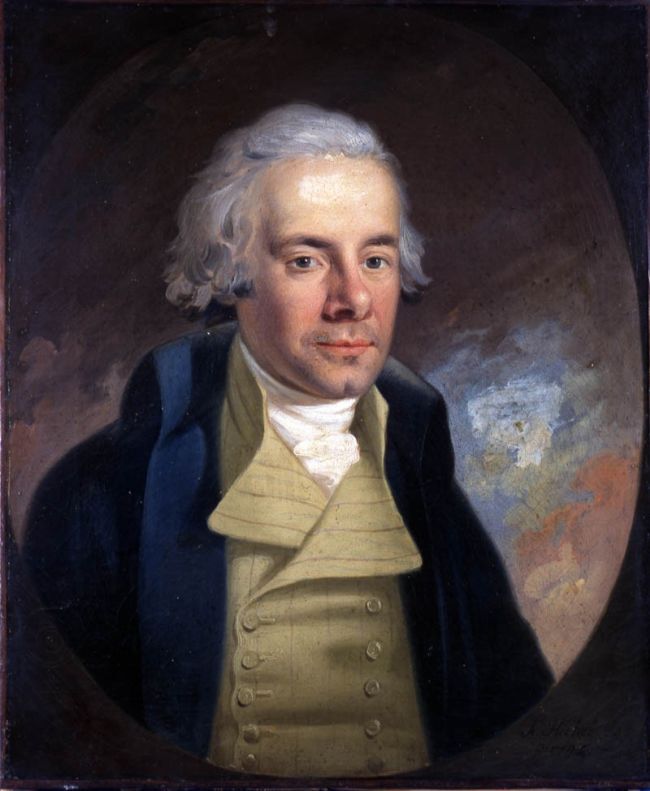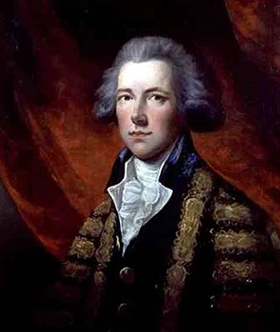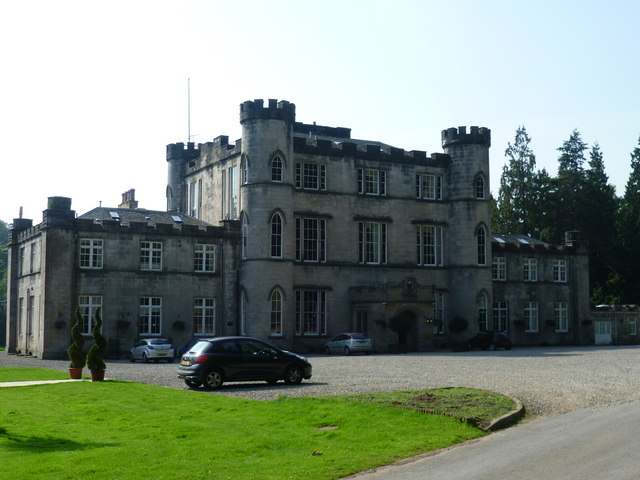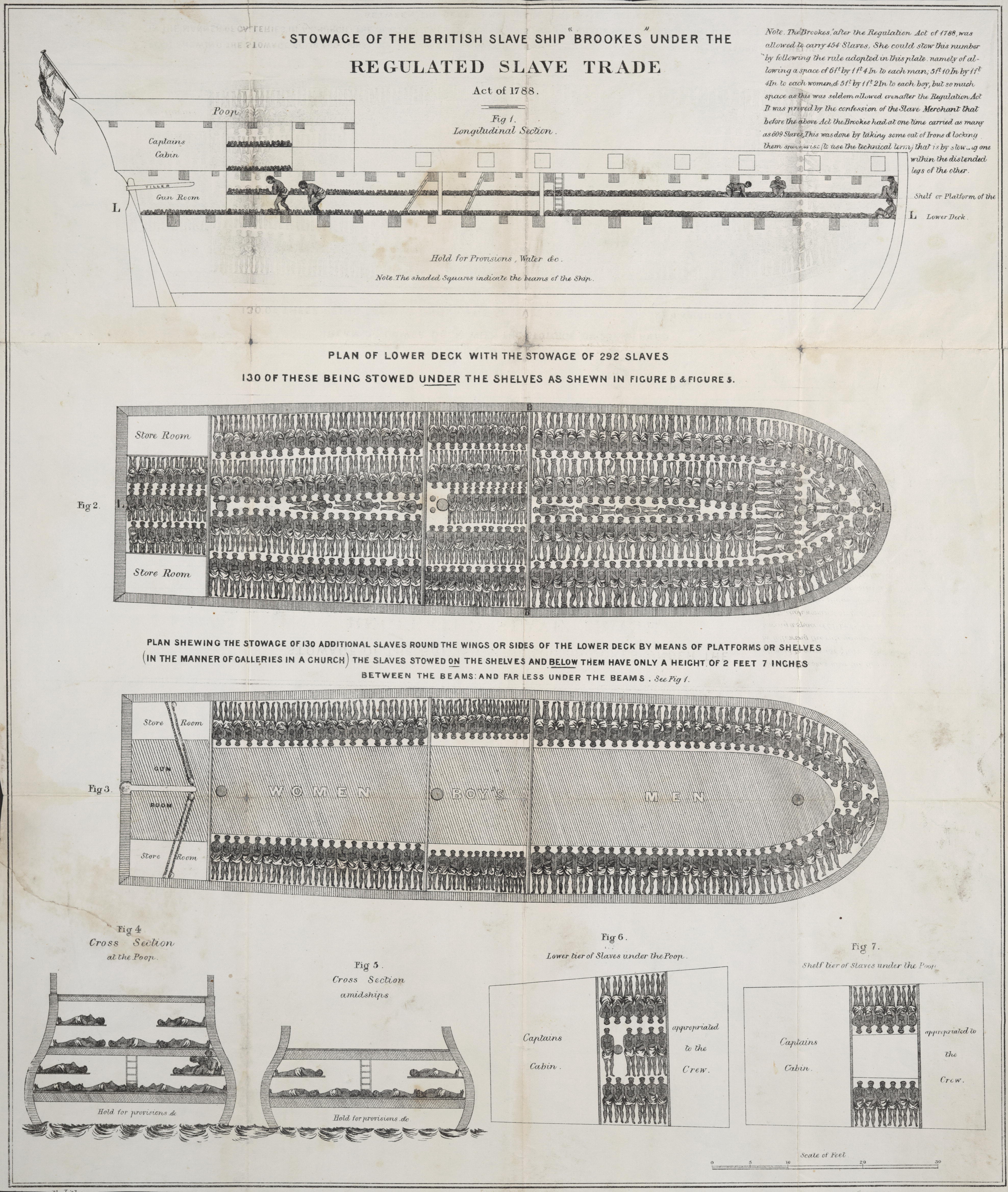|
Slave Trade Act 1807
The Slave Trade Act 1807 ( 47 Geo. 3 Sess. 1. c. 36), or the Abolition of Slave Trade Act 1807, was an act of the Parliament of the United Kingdom prohibiting the Atlantic slave trade in the British Empire. Although it did not automatically emancipate those enslaved at the time, it encouraged British action to press other nation states to abolish their own slave trades. It took effect on 1 May 1807, after 18 years of trying to pass an abolition bill. Many of the supporters thought the act would lead to the end of slavery. Slavery on English soil was unsupported in English law and that position was confirmed in Somerset's case in 1772, but it remained legal in most of the British Empire until the passing of the Slavery Abolition Act 1833 ( 3 & 4 Will. 4. c. 73). Background As British historian Martin Meredith writes, "In the decade between 1791 and 1800, British ships made about 1,340 voyages across the Atlantic, landing nearly 400,000 slaves. Between 1801 and 1807, ... [...More Info...] [...Related Items...] OR: [Wikipedia] [Google] [Baidu] |
47 Geo
47, 47 or forty-seven may refer to: *47 (number) *47 BC * AD 47 *1947 *2047 *'47 (brand), an American clothing brand * ''47'' (magazine), an American publication * 47 (song), a song by Sidhu Moose Wala *47, a song by New Found Glory from the album '' Not Without a Fight'' *"Forty Seven", a song by Karma to Burn from the album '' V'', 2011 * +47, the international calling code for Norway *4seven, a television channel *Agenda 47, code for the Trumpist plans in the elections for the 47th president *Donald Trump, the 47th president of the United States *Agent 47, protagonist of the ''Hitman'' video game series *''47'', a young adult novel by Walter Mosley *47 Aglaja, a main-belt asteroid See also * List of highways numbered 47 * Channel 47 (other) * M47 (other), including "Model 47" (M47) * Forty-seven Ronin (other) * A47 (other) * Capital Steez Courtney Everald Dewar Jr. (July 7, 1993 – December 23, 2012), better known by his stage name Cap ... [...More Info...] [...Related Items...] OR: [Wikipedia] [Google] [Baidu] |
English People
The English people are an ethnic group and nation native to England, who speak the English language in England, English language, a West Germanic languages, West Germanic language, and share a common ancestry, history, and culture. The English identity began with the History of Anglo-Saxon England, Anglo-Saxons, when they were known as the , meaning "Angle kin" or "English people". Their ethnonym is derived from the Angles (tribe), Angles, one of the Germanic peoples who invaded Great Britain, Britain around the 5th century AD. The English largely descend from two main historical population groups: the West Germanic tribes, including the Angles, Saxons, and Jutes who settled in England and Wales, Southern Britain following the withdrawal of the Ancient Rome, Romans, and the Romano-British culture, partially Romanised Celtic Britons who already lived there.Martiniano, R., Caffell, A., Holst, M. et al. "Genomic signals of migration and continuity in Britain before the Anglo-Sa ... [...More Info...] [...Related Items...] OR: [Wikipedia] [Google] [Baidu] |
House Of Lords
The House of Lords is the upper house of the Parliament of the United Kingdom. Like the lower house, the House of Commons of the United Kingdom, House of Commons, it meets in the Palace of Westminster in London, England. One of the oldest extant institutions in the world, its origins lie in the early 11th century and the emergence of bicameralism in the 13th century. In contrast to the House of Commons, membership of the Lords is not generally acquired by Elections in the United Kingdom, election. Most members are Life peer, appointed for life, on either a political or non-political basis. House of Lords Act 1999, Hereditary membership was limited in 1999 to 92 List of excepted hereditary peers, excepted hereditary peers: 90 elected through By-elections to the House of Lords, internal by-elections, plus the Earl Marshal and Lord Great Chamberlain as members Ex officio member, ''ex officio''. No members directly inherit their seats any longer. The House of Lords also includes ... [...More Info...] [...Related Items...] OR: [Wikipedia] [Google] [Baidu] |
Edward James Eliot
Edward James Eliot (24 August 1758 – 20 September 1797) was an English Member of Parliament. Life Eliot was born in Cornwall, the son of Catherine (''c''.1735–1804), daughter and heir of Edward Elliston of Gestingthorpe, Essex, an East India Company captain, and Edward Craggs-Eliot (1727–1804), politician, created Baron Eliot in 1784. He went to Pembroke College, Cambridge in 1775, becoming friends with the future Prime Minister, William Pitt the Younger, and graduated with an MA in 1780. He was elected Member of Parliament for St Germans, Cornwall from 1780 and for Liskeard from 1784. He soon became a Treasury minister from 1782, and was a member of the government of the Younger Pitt from 1783, being appointed King's Remembrancer in the Exchequer of pleas in 1785. On 24 September 1785 he married Harriot Pitt, the younger daughter of William Pitt the Elder and sister to the Younger Pitt. One year later, and five days after the birth of their only child, a daughter n ... [...More Info...] [...Related Items...] OR: [Wikipedia] [Google] [Baidu] |
Richard Wellesley, 1st Marquess Wellesley
Richard Colley Wellesley, 1st Marquess Wellesley, (20 June 1760 – 26 September 1842) was an Anglo-Irish politician and colonial administrator. He was styled as Viscount Wellesley until 1781, when he succeeded his father as 2nd Earl of Mornington. In 1799, he was granted the Irish peerage title of Marquess Wellesley of Norragh. He was also Lord Wellesley in the Peerage of Great Britain. Richard Wellesley first made his name as fifth Governor-General of Bengal between 1798 and 1805. He later served as Foreign Secretary in the British Cabinet and as Lord Lieutenant of Ireland. In 1799, his forces invaded Mysore and defeated Tipu, the Sultan of Mysore, in a major battle. He also initiated the Second Anglo-Maratha War. Wellesley was the eldest son of Garret Wesley, 1st Earl of Mornington, an Irish peer, and Anne, the eldest daughter of Arthur Hill-Trevor, 1st Viscount Dungannon. His younger brother, was Field Marshal Arthur Wellesley, 1st Duke of Wellington. Early l ... [...More Info...] [...Related Items...] OR: [Wikipedia] [Google] [Baidu] |
William Pitt The Younger
William Pitt (28 May 1759 – 23 January 1806) was a British statesman who served as the last prime minister of Kingdom of Great Britain, Great Britain from 1783 until the Acts of Union 1800, and then first Prime Minister of the United Kingdom, prime minister of the United Kingdom from January 1801. He left office in March 1801, but served as prime minister again from 1804 until his death in 1806. He was also Chancellor of the Exchequer for all of his time as prime minister. He is known as "Pitt the Younger" to distinguish him from his father, William Pitt the Elder, who had also previously served as prime minister. Pitt's prime ministerial tenure, which came during the reign of King George III, was dominated by major political events in Europe, including the French Revolution and the Napoleonic Wars. Pitt, although often referred to as a Tory (British political party), Tory, or "new Tory", called himself an "independent Whig (British political party), Whig" and was generally oppo ... [...More Info...] [...Related Items...] OR: [Wikipedia] [Google] [Baidu] |
An Act For The Gradual Abolition Of Slavery
An Act for the Gradual Abolition of Slavery, passed by the Fifth Pennsylvania General Assembly on 1 March 1780, prescribed an end for slavery in the Commonwealth of Pennsylvania in the United States. It was the first slavery abolition act in the course of human history to be adopted by an elected body. This state legislative action prohibited the further importation of children and adults into the Commonwealth of Pennsylvania for the purposes of enslaving them, required Pennsylvania slaveholders to annually register the names of the individuals they were continuing to enslave (with forfeiture for noncompliance, and manumission for the enslaved), and established that all children born in Pennsylvania were free persons regardless of the condition or race of their parents. Individuals who had been enslaved in Pennsylvania before the 1780 law came into effect remained enslaved for life. Pennsylvania's " gradual abolition"—rather than Massachusetts's 1783 "instant abolition"—becam ... [...More Info...] [...Related Items...] OR: [Wikipedia] [Google] [Baidu] |
Henry Dundas, 1st Viscount Melville
Henry Dundas, 1st Viscount Melville, PC, FRSE (28 April 1742 – 28 May 1811), styled as Lord Melville from 1802, was a British politician who served as Home Secretary from 1791 to 1794 and First Lord of the Admirality from 1804 to 1805. He was instrumental in the encouragement of the Scottish Enlightenment, in the prosecution of the war against France, and in the expansion of British influence in India. Prime Minister William Pitt appointed him Lord of Trade (1784–1786), Home Secretary (1791–1794), President of the Board of Control for Indian Affairs (1793–1801), Secretary at War (1794–1801) and First Lord of the Admiralty (1804–1805). As a political boss, Dundas's deft and almost absolute power over Scottish politics during a long period in which no monarch visited the country led to him being nicknamed "King Harry the Ninth", the "Grand Manager of Scotland" (a play on the masonic office of Grand Master of Scotland), and "The Uncrowned King of Scotland. ... [...More Info...] [...Related Items...] OR: [Wikipedia] [Google] [Baidu] |
James Stephen (British Politician)
James Stephen (30 June 1758 – 10 October 1832) was the principal English lawyer associated with the Abolitionism in the United Kingdom, movement for the abolition of slavery. Stephen was born in Poole, Dorset; the family home later being removed to Stoke Newington. He married twice and was the father of James Stephen (undersecretary), Sir James Stephen, grandfather of Sir James Fitzjames Stephen and Sir Leslie Stephen, and great-grandfather of Virginia Woolf and Vanessa Bell. Early life James Stephen was born to James Stephen and Sibella Stephen (née Milner). He began his career reporting on parliamentary proceedings for the ''Morning Post''. He was admitted to Lincoln's Inn in 1775 and was called to the bar there in 1782. His father had earlier been a member of the Middle Temple but was expelled before being called to the bar. James also read law at University of Aberdeen, Marischal College, Aberdeen, for two years but ended his studies due to a lack of money. The following ... [...More Info...] [...Related Items...] OR: [Wikipedia] [Google] [Baidu] |
Thomas Clarkson
Thomas Clarkson (28 March 1760 – 26 September 1846) was an English abolitionist, and a leading campaigner against the slave trade in the British Empire. He helped found the Society for Effecting the Abolition of the Slave Trade (also known as the Society for the Abolition of the Slave Trade) and helped achieve passage of the Slave Trade Act 1807, which ended British trade in slaves. He became a pacifist in 1816 and, with his brother, John, was one of the twelve founders of the Society for the Promotion of Permanent and Universal Peace. In his later years Clarkson campaigned for the abolition of slavery worldwide. In 1840 he was the key speaker at the British and Foreign Anti-Slavery Society's first convention in London, which campaigned to end slavery in other countries. Early life and education Clarkson was the elder son of the Reverend John Clarkson (1710–1766), a Church of England priest and headmaster of Wisbech Grammar School, and his wife, Anne, née Ward (died ... [...More Info...] [...Related Items...] OR: [Wikipedia] [Google] [Baidu] |
William Wilberforce
William Wilberforce (24 August 1759 – 29 July 1833) was a British politician, philanthropist, and a leader of the movement to abolish the Atlantic slave trade. A native of Kingston upon Hull, Yorkshire, he began his political career in 1780, and became an independent Member of Parliament (MP) for Yorkshire (1784–1812). In 1785, he underwent a conversion experience and became an Evangelical Anglican, which resulted in major changes to his lifestyle and a lifelong concern for reform. In 1787, Wilberforce came into contact with Thomas Clarkson and a group of activists against the transatlantic slave trade, including Granville Sharp, Hannah More and Charles Middleton. They persuaded Wilberforce to take on the cause of abolition, and he became a leading English abolitionist. He headed the parliamentary campaign against the British slave trade for 20 years until the passage of the Slave Trade Act 1807. Wilberforce was convinced of the importance of religion, morality and e ... [...More Info...] [...Related Items...] OR: [Wikipedia] [Google] [Baidu] |








